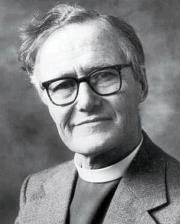
This post addresses the false idea of pure objectivity.
I want to also share a terrific article I read the other day on a popular contemporary philosophy called materialism which uses so much information from science that its adherents actually think it’s science.
The next post will advance the idea that people don’t primarily think and choose beliefs by intellectual processes but rather as results of the way their lives have been shaped by outside influences, notably culture.
Without further ado, some of the words of an intellectual hero of mine, Lesslie Newbigin, from one of the most influential books I have read, Proper Confidence: Faith, Doubt, and Certainty in Christian Discipleship:
“All efforts to know must begin with something given. This given includes what we normally call the data, the facts that form part of the foundation from which our reason works. It also includes…the tradition of knowing which has been developed in a human community…In a society that has accepted another creed…and that – moreover – does not recognize it as a creed but thinks that it is a religiously neutral account of the facts, confident affirmation of the Christian faith as public truth is regarded as sectarian and dogmatic.
“…The question to be asked is, What do we mean by ‘the facts’?…Facts are supposed to be objective; interpretations of them, in contrast, are held to be subjective…[But] Facts are not entities that simply implant themselves in a vacant mind; they are grasped by a mind trained in a particular culture to grasp them. The same realities presented to a child of three and to a trained scientist will not be the same sort of facts to both of them.
“…The eternal truths of reason are in fact products of particular histories…The self-evident truths of the Enlightenment are, we now see, not self-evident at all but only appear self-evident to a society which has been shaped by a particular story.
Now the outstanding article on materialism by Andrew Ferguson of The Weekly Standard, “The Heretic: Who is Thomas Nagel and why are so many of his fellow academics condemning him?”
